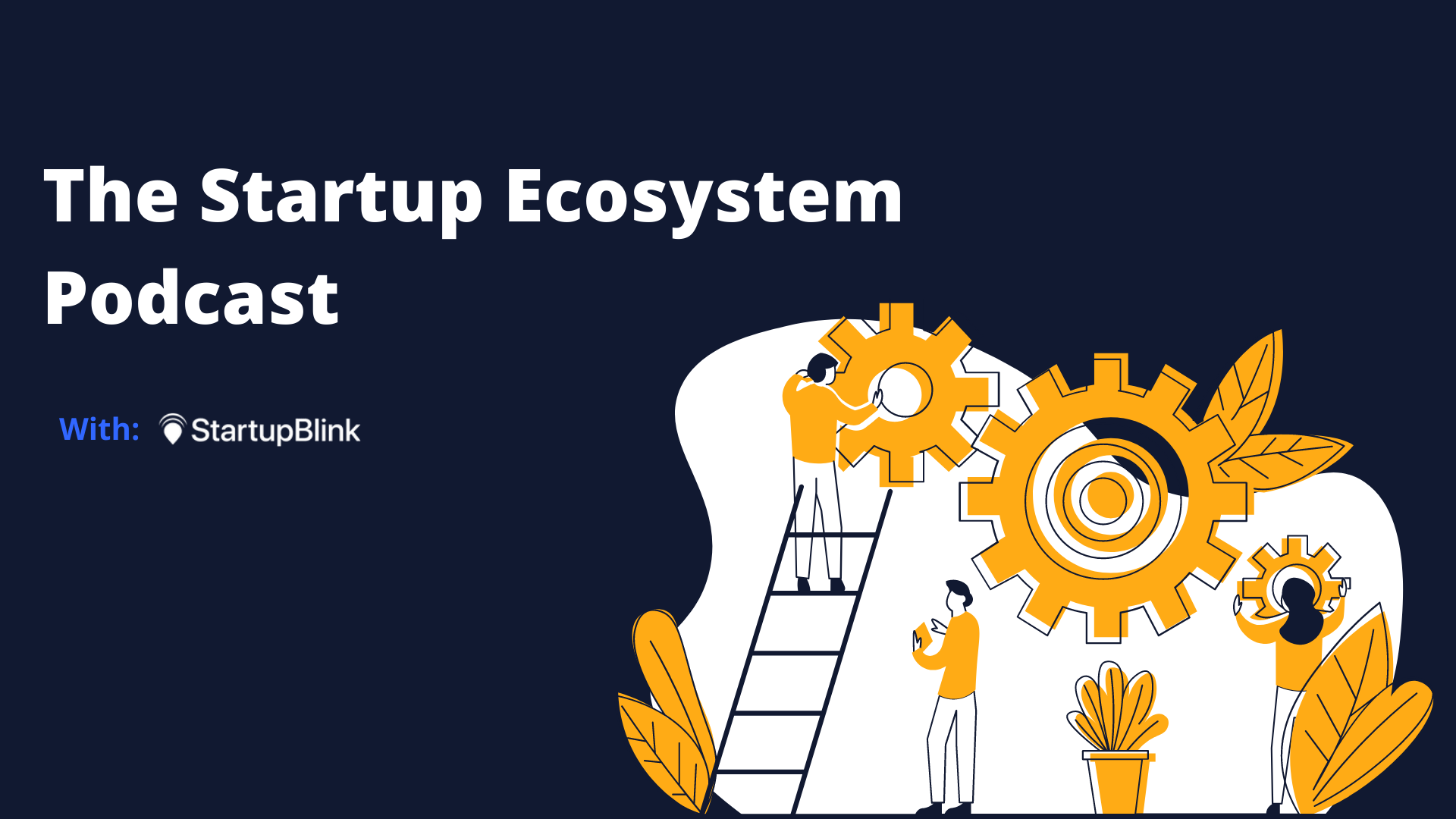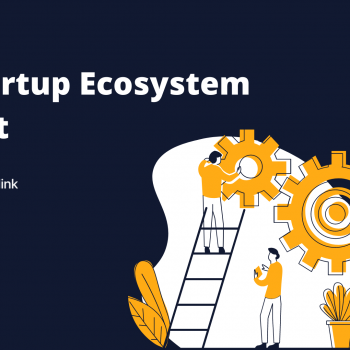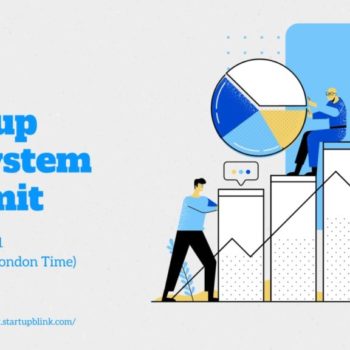Conferences have long been a great opportunity for entrepreneurs to build connections, learn more from others, and showcase their businesses. Likewise, for startup ecosystem developers, these kinds of conferences are an opportunity the brand and market your ecosystem.
In this episode, Eli David and StartupBlink team discuss the significance of hosting startup conferences as a way to grow startup ecosystems. If you are curious about which ecosystems should join or host conferences, listen and get more insights!
Why should your city host a startup conference?
Hosting an event requires dedicated time and financial resources, therefore the return on investment is important. You might think that these kinds of events are a buzz for a few days and once it’s done, many people get backs to their business. So why should your city get involved in hosting a startup conference? Firstly, it is a great opportunity to brand your city as a hub for startups to relocate. This of course requires additional efforts such as having startup-friendly policies. Secondly, the attendees will fly to your city, stay in a hotel, and spend money there for the duration of the event. This is an effective way to boost business tourism in your city.
One of the most remarkable success stories that can help showcase the benefits of hosting a startup conference is Web Summit in Lisbon, Portugal. Web Summit was originally founded in Dublin, and the city hosted the event from 2009 to 2016. In those days, Web Summit was a small event, attended by only 400 people. However, over time it evolved into an event with more than 70,000 attendees in 2022. In 2018, the Government of Lisbon and Web Summit have signed a deal worth $128 million to hold the event in Lisbon, until 2028. As of 2021, the event has generated €115 million in revenue for the state, and €252 million in value-added tax. Moreover, as a result of the event, 6895 jobs have been created. This action to promote the ecosystem through strategic events was in its turn backed up by strategic changes on the policy level. Portugal now attracts startups with policies such as the startup visa, tech visa, and the nonhabitual residence (NHR) tax regime, offering significant tax cuts for foreign income, freelancing, and cryptocurrency, among others.
Explore startup ecosystems by geography and business region using the StartupBlink PRO Map
Top 10 startup events to join in 2023
As StartupBlink, we have participated in many events related to startups. Hence, we bring some of the most influential events for you to join in 2023.
Location: Lisbon, Portugal
Web Summit is one of the most rip-roaring events for startups that brings startups and other ecosystem stakeholders around the world. The event is centered around topics such as internet technology, emerging technologies, and venture capitalism. Every year, Web Summit attracts more than 70,000 people to Lisbon.
2. Slush
Location: Helsinki, Finland
Since 2008, Slush brings founders and investors from around the world together in Helsinki, Finland. The event features, pitching competitions and matchmaking sessions. In 2022, the event welcomed 4600 startup founders/operators, 2600 investors, and 400 media representatives.
Location: Copenhagen, Denmark
Tech BBQ especially targets pre-seed, seed-stage, and series A startups across the Nordics and Baltics and enables them to meet with investors to grow their businesses. To this day, the event featured more than 6400 attendees, 2300 startup representatives, and 750 investors.
Location: London, United Kingdom
London Tech Week is an opportunity to meet with other ecosystem stakeholders in the tech arena, covering various educational topics such as “digital sustainability”, “the vision of web 3.0” and “from startups to unicorns”. London Tech Week has more than 20,000 participants and welcomes more than 750 industry experts.
Location: Multiple Locations
South Summit lasts for three days and it is a great place to join if you would like to showcase your startup as well as meet with leading companies, startups, entrepreneurs, investors, and institutions around the world. The event happens in locations such as Bilbao, Madrid, and Brazil.
Location: Multiple Locations
Every year, Startup Grind hosts events in multiple cities, with an aim to educate startups around the world and help them to build, grow and scale with the help of Startup Grind’s global network. The institution has chapters in 600 cities and 125 countries.
Location: Toronto, Canada
Collision is the biggest technology conference in Canada, targeting North American startup players. In 2022, more than 33,000 attendees and 1,500 startups gathered in Toronto to join this event.
Location: Tallinn, Estonia
Latitude 59 is another event to meet with startups and other ecosystem stakeholders in the Nordics and the Baltics. The event has more than 500 startups, 130 confirmed speakers, 350 investors, and 2500 attendees.
Location: Paris, France
Hello Tomorrow is a deep-tech event covering breakthrough discussions across various topics such as healthcare revolutions, energy transition, and clean mobility. The event also includes a Global Challenge in which 60 promising startups pitch their ideas on the stage. The winner of the challenge is rewarded with an equity-free €100,000. The 2nd and 3rd runners also receive €30,000 and €20,000 respectively.
Location: Amsterdam, The Netherlands
In 2022, The Next Web attracted 10,000 attendees from over 90 countries who thrived to learn more about how technology can shape the future. According to the data shared by the event’s page, 78% of the attendees are decision-makers and 26% are C-Level executives. This is a two-day event that welcomes influential speakers to share their opinions about tech-related issues.
Should every ecosystem host a startup conference?
If your startup ecosystem is at a seed stage, you should definitely consider investing more in promoting it. Conferences are massive branding and marketing opportunities to show your ecosystem’s strengths and gain more traction. One key question to ask while building a conference is “Where do we stand as an ecosystem?”. If your ecosystem has many early-stage startups, an influential event would be the one that connects early-stage startups to investors. On the other hand, if your ecosystem has relatively more unicorns, share it with the world, and use this strength as a way to connect early-stage startups around the world to the unicorns.
While bringing conferences into your ecosystem, make sure you are following a comprehensive approach; an event is just one component to elevate your ecosystem. Make sure you also have the infrastructure ready for entrepreneurs who would like to start or expand in your ecosystem.
Another tip to hosting a successful startup conference is making sure that the right people are attending. You need as many relevant leads as possible to make sure your conference will create an impact. The smaller the event is, the greater the disappointment.
If your ecosystem has financial constraints to start a conference, you can still drive benefits out of other startup conferences around the world. You can rent a booth at those events, take some of the most promising startups in your ecosystem and show what your ecosystem can offer to prospective startups. Cape Verde, Estonia, the Canary Islands, Dubai, Bahrein, and Qatar are doing a great job of bringing the spotlight to themselves by frequently participating in startup conferences.
How has COVID-19 changed the Conferences?
After the COVID-19 pandemic, like many other physical events, startup conferences have evolved into different formats. Sadly, some events disappeared, especially the ones that are relatively young. The ones that survived the pandemic have gone online, but the extent that they are successful is debatable.
London Tech Week, Web Summit, and Collision are the ones that have done the online events correctly. Although it is not possible to meet in person during the pandemic, they have created platforms in which people can do networking, an attractive perk for joining startup conferences. Additionally, more people have joined these events because they are online.
As the world moves towards normalization, hybrid conferences become more widespread, because it gives the flexibility of online conferences and at the same time, those who prefer to build in-person relationships with other attendees can physically join the event.
About Us:
StartupBlink is the world’s most comprehensive startup ecosystem map and research center, working with over 100 government entities worldwide. StartupBlink’s global startup ecosystem map has tens of thousands of registered startups, coworking spaces, and accelerators, creating a robust sample of innovation globally.
Listen on:






